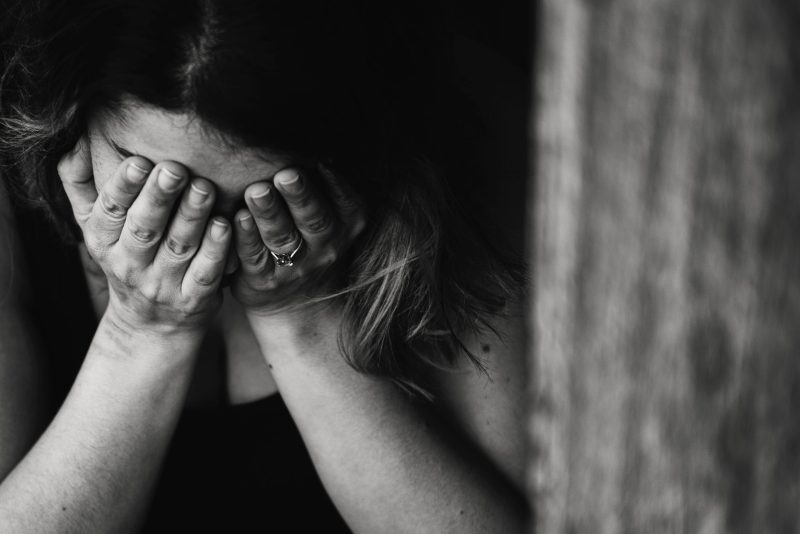8 Ways To Find Courage In The Midst Of Anxiety
When anxiety swoops in, it can be scary. Getting the flu is one thing, but how do you handle life's challenges like rejection, failure, or public speaking? The first step is to not fight it — face your fears head-on by taking these eight steps.
1. Focus on your strengths.
What are strengths? Strengths are those skills, abilities and talents that make us stand out from the crowd. They help us give our best effort in everything we do.
In the midst of anxiety, it can be hard to remember that there are actually things you're good at. It's not just a matter of having “strengths,” but rather a matter of how you use them to your advantage.
When you're feeling anxious, it can be easy to get caught up in the negative thoughts that come with anxiety. You might wonder if people around you are judging you, or if they think less of you because of your anxiety. You might even start to question yourself—is this really how I act? Am I really nervous all the time?
But what if we could flip that script? What if we focused on our strengths instead? What if we used the skills we already have and just put them into practice in a new way? If we focus on what we're good at, then instead of worrying about being judged or thinking less of ourselves, we'll have something positive to latch onto. And even better: it'll help us feel more confident in our abilities as well!
2. Practice gratitude and appreciation.
Gratitude is an act of appreciation and thanksgiving for what you have, while appreciation is a deeper form of gratitude, seeing the value in all that you have accomplished, even if it wasn't easy or without struggle.
Practicing gratitude and appreciation can help you to find courage in the midst of anxiety. This is because gratitude and appreciation are two things that help you to reframe your thinking so that you see challenges as opportunities, rather than threats. When you're feeling anxious, it's easy to see challenges as threats, especially when they involve public speaking or other situations where you're worried about being judged by others. But when you practice gratitude and appreciation, it helps shift your perspective so that instead of looking at challenges as threats, you see them as opportunities for growth and improvement—and that's how we get closer to finding courage in the midst of anxiety!
3. Look for the silver lining in a difficult situation or challenge.
When you're going through a difficult situation or challenge, it's easy to get down on yourself. You might start to feel like you're not good enough, or that your problems are too big for anyone else to solve.
Silver lining is a way of looking at something bad and finding the good in it. It's about seeing what's wrong with your situation as an opportunity for growth and learning, rather than just as a reason to give up hope and give in to despair.
It is also about taking action on your own behalf—it's about taking control over how your life looks heading into the future, instead of letting other people make those decisions for you. It's about working hard now so that tomorrow will be easier for you because of all those things you did today.
4. Use humor and playfulness to lighten up a stressful situation or challenge.
Humor makes us feel better about ourselves, which can help us feel less self-conscious about our situation. It also helps us to recognize that our anxiety might not be as bad as we think it is, and that there's something we can do about it.
Moreover, playfulness is another way to find courage in the midst of anxiety. Playfulness helps us recognize that we have choices and options, no matter how scary or stressful the situation seems at first glance.It also helps us look at things from a different perspective—one that doesn't include fear or anger or sadness—and realize that there are other ways for us to deal with our problems than just running away from them.
5. Practice breathing techniques to calm yourself
The best way to learn breathing techniques is through guided meditations. The most common type of guided meditation is a relaxation technique called mindfulness meditation, which teaches you how to focus on your breath while remaining fully aware of what's going on around you. This can be very useful if you want to use it as a tool for managing anxiety, because it allows you to gain some control over your thoughts and feelings without being consumed by them.
Another type of meditation that's often used for managing anxiety is focused attention meditation, which focuses on a specific thought or emotion and trains you not only how to recognize but also how not to react when these things happen again in the future.
6. Take care of yourself
What does it mean to take care of yourself? It means that you are not afraid to spend time on yourself, including taking care of your physical and mental health.
Taking care of yourself includes eating healthy foods, exercising regularly, getting enough sleep, and setting aside time for yourself each day. It also means taking care of your emotional needs—learning how to soothe yourself when you're stressed or upset, going on dates with friends or seeking support groups if you feel alone or isolated.
When we take care of ourselves, we can feel more confident in our abilities to handle the stressors in our lives. We can keep our wits about us when we're feeling down or overwhelmed by things out of our control.
And when we take care of ourselves, we're able to be present for others and make better decisions because we are less likely to be distracted by negative thoughts or feelings that might have otherwise prevented us from hearing what other people are saying!
7. Don't beat yourself up over mistakes
Mistakes are a natural part of life. It's how you learn, how you grow and how you keep moving forward. If you beat yourself up over mistakes, you're going to find it harder to move forward and succeed.
Beating yourself up is one of the worst things that we can do as human beings because it makes us feel bad about ourselves. The truth is that sometimes we make mistakes, but guess what? We can't change the past! What matters is what happens next—the future.
Try not to beat yourself up over your mistakes! Instead, try to see them as opportunities for growth. You'll be able to see where you can improve and what you need to work on in order to become a better person and more successful at whatever it is that you're passionate about doing (whether it's writing an article or running a marathon).
By taking responsibility for your actions and accepting them for what they are instead of shaming yourself about them, you'll find more courage than ever before when faced with anxiety.
8. Be honest with yourself
It can be hard to admit to yourself that you're struggling. You might feel like it's just a phase, or that you'll get over it eventually, or that admitting how hard it is will make things worse. But the truth is, being honest with yourself is the only way to start feeling better.
When you're honest with yourself, you can identify what's causing your anxiety and decide how best to deal with it. Maybe it's fear of failure, or fear of change, or fear of missing out on something fun because you're at home alone instead of out in the world enjoying life. Whatever it is for you (and whatever your specific fears are), being honest about them will help you find courage in the midst of anxiety because then you'll know what steps need to be taken next!
We want to tell you that it will be okay, that all your troubles are small, and that we've made it through and you will too. But we know that won't help you. We don't have the magic answers for sure. But we hope to offer some hope because we've been there too. And if it's not okay—we hope these tips give you courage to try again tomorrow, or to move on as best you can.
For more helpful and informative insights, visit here.





